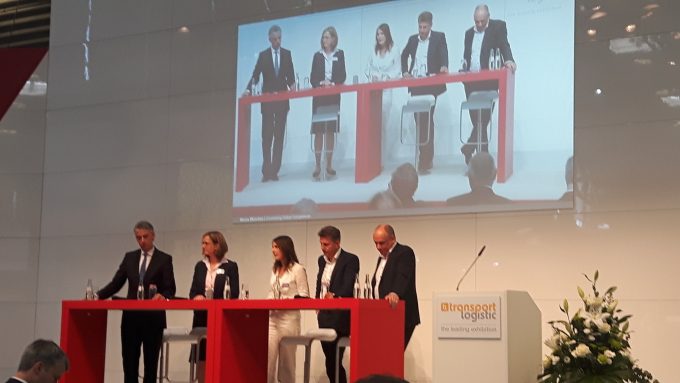Europe's green aviation fuel targets 'unrealisable', says IATA chief
IATA director general Willy Walsh has slammed Europe’s clean energy targets for the aviation sector ...

Germany is attempting to define itself as the world’s leading logistics country, as Transport Logistic in Munich kicked off this morning.
An impassioned speech by the Federal Minister of transport and digital infrastructure, Andreas Scheuer, launched the proceedings, calling for Germany to be “a little bit better” than other countries, with the environment and innovation at the heart of its thinking.
He said intelligent infrastructure was key to Germany’s Innovation Programme 2030, which would see a move from road to rail and ...
Maersk u-turn as port congestion increases across Northern Europe
Apple logistics chief Gal Dayan quits to join forwarding group
Maersk Air Cargo sees volumes fall as it aims for 'margin in favour of revenue'
Houthis tell Trump they will end attacks on Red Sea shipping
Transpac rates hold firm as capacity is diverted to Asia-Europe lanes
Airlines slash freighter capacity post-de minimis, but 'the worst is yet to come'
MSC revamps east-west network as alliance strategies on blanking vary
India-Pakistan 'tit-for-tat' cargo ban sparks sudden supply chain shocks


Comment on this article